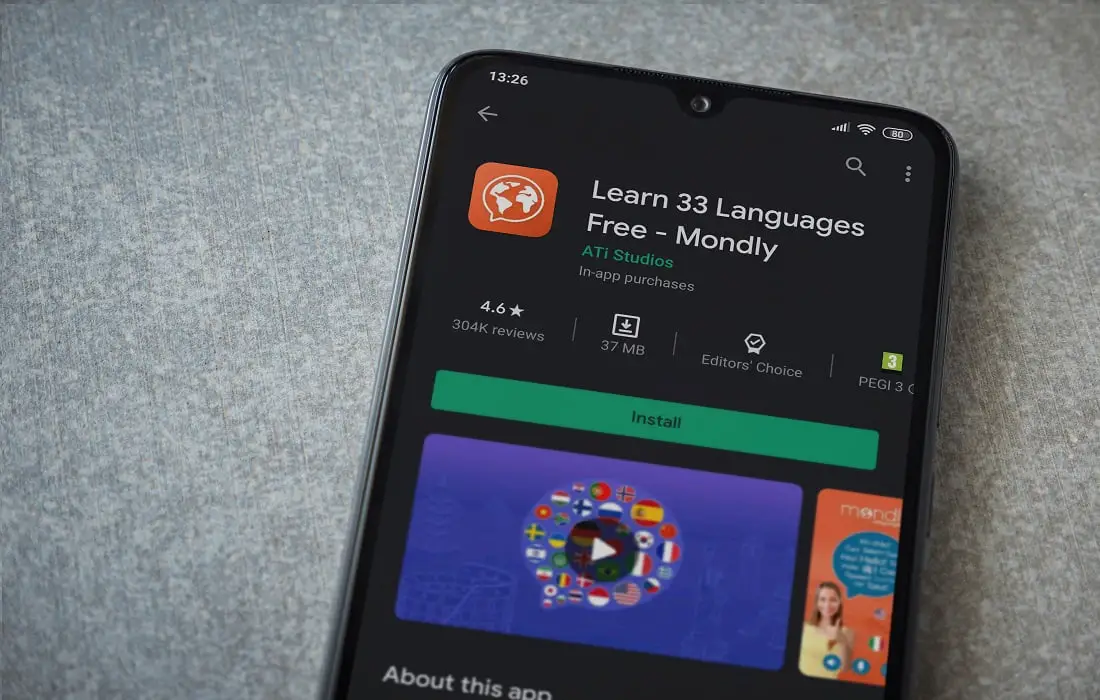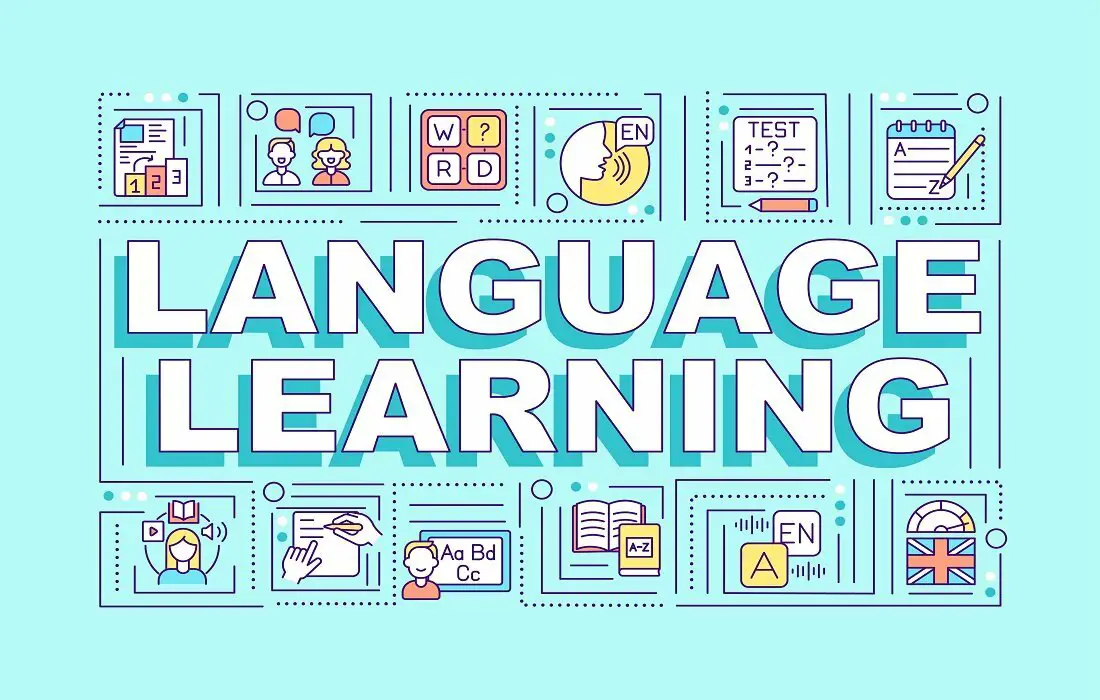Whether you are a student, a frequent traveler, or someone who loves to explore different cultures, learning a new language can be an exciting yet challenging journey. It becomes frustrating to figure out where to begin. Here we present effective strategies to help you start learning a new language. Let’s discover ways to make language learning easy and fun.
Top Ten languages in the world and its benefits:
1. English: Widely spoken, it facilitates global communication, business, technology, and education.
2. Mandarin Chinese: Economic growth in China makes it valuable for business and easier to find a new job.
3. Spanish: Used across many countries, it aids in travel, business, diplomacy, and literature.
4. Hindi: Important in South Asia, it improves regional communication, trade, and cultural exchange.
5. Arabic: Key for Islamic culture, international diplomacy, trade, and Middle East understanding.
6. French: Used in diplomacy, culture, literature, and international organizations.
7. Russian: excellent for literature, science, diplomacy, and understanding Eastern Europe.
8. Bengali: Useful in South Asia, it enhances regional communication and cultural appreciation.
9. Portuguese: Facilitates trade, tourism, and cultural exchange in Brazil, Portugal, and Africa.
10. Urdu: Important in Pakistan and South Asia, aiding regional communication and cultural ties. 1. Invest in the Right Platform
The best way to learn a new language is to invest in the right language-learning platform. Due to a variety of learning resources, It is very important to find one that is the perfect fit for your mood. A wide variety of learning resources, however, make choosing the one that best fits your needs challenging.
The following tips will help you choose the right language-learning program:
- Decide whether you prefer audio-based learning, visual-based learning, or a combination of both.
- Research different language learning platforms and read reviews to get an idea of their features and user satisfaction.
- Look for platforms that offer a variety of exercises and activities to keep you engaged and motivated throughout your language-learning journey.
2. Use Technology to Enhance Learning
Take advantage of the various tech solutions tools available to organize your language learning experience.
Here are some language learning methods:
Enroll in online language courses that provide structured lessons, interactive materials, and feedback from qualified instructors.
Utilize language learning apps that offer interactive exercises, vocabulary drills, and grammar practice such as Duolingo, Babbel, and Memories.

3. Schedule Time for Language Study and Be Consistent
Language learning beginner requires dedication and consistency. Set aside specific time slots in your daily schedule dedicated solely to language study.
Keep your efforts consistent by following these suggestions:
Set a routine and decide which time of day is best for you to study, whether it is early in the morning, during lunch, or after dinner.
Use productivity tools and utilize task management apps, that offer goal-setting features and reminders to keep you on track.
Set achievable goals and break down your language learning goals into smaller, manageable tasks. This habit will keep you motivated, and self-driven as you would be able to track your progress along the way.
4. Mastering the Basics: Learn Common Vocabulary and Grammar
Mastering the basics is key to effectively communicating in a new language.
Here’s how to approach this foundational step:
- Focus on learning words and phrases that are commonly used in everyday conversations. This will allow you to quickly start forming sentences and engaging in basic conversations.
- Understand the basic grammatical rules of the language and practice applying them in context.
- Explore websites that provide structured lessons, grammar explanations, vocabulary lists, and interactive exercises such as FluentU, BBC Languages, and Language Tool.
- Utilize flashcard apps like Anki or Quizlet to practice vocabulary retention through spaced repetition techniques.
5. Don’t Learn Language as a School Course
Approach language learning as a lifelong journey rather than a school course. Embrace the power of a growth mindset and channel your energy towards continuous learning.
Here are a few tips:
- Embrace the fact that language learning involves making mistakes and embracing them as opportunities for growth.
- Immerse yourself in the language with authentic language resources, such as music, movies, books, and podcasts, to expose yourself to natural language use and cultural nuances.

6. Develop Listening Comprehension Skills
Listening comprehension is an important language-learning approach.
Here’s how to develop this skill effectively:
- Listen to podcasts dedicated to language learning to improve your listening comprehension skills and become familiar with native speakers’ natural conversational style.
- Use websites that provide transcripts or subtitles along with audio materials. This will help you follow along and better understand the content.
7. Watch Movies in the Language You Want to Learn
Watching movies in the language you want to learn can be an efficient and quick way to improve your language skills.
Consider the following language learning techniques:
- Begin by watching movies with subtitles in your target language. As you progress, watch without subtitles.
- Pay attention to the dialogue, intonation, and cultural references. Take note of unfamiliar words or phrases and look them up later.
- After watching, summarize the plot or discuss your thoughts with others to further solidify your understanding and engage in language-related discussions.
8. Read about Things of Your Interest in the Target Language
Reading materials related to your target language is a great way to improve your language skills.
The following tips can help you learn language through reading:
- Begin with children’s books, or news articles to build your reading comprehension skills.
- While reading, use online dictionary extensions or translation tools to look up unfamiliar words or phrases. Over time, aim to rely less on translation and more on your understanding of context.
9. Write More Often in the Language of Interest
Writing is a good exercise to reinforce your language skills.
Incorporate writing into your language-learning routine with the following techniques:
Begin by free writing in the target language. As you make progress, push yourself to complete more complex writing tasks.
Seek feedback from native speakers or fellow learners, and ask for their suggestions for improvement. This will improve your writing skills.

10. Practice Speaking
Engaging in conversations with native speakers improves pronunciation, fluency, and confidence.
Here are some good ways to practice language speaking:
- Engage in role-playing scenarios where you pretend to be in various situations, such as ordering food in a restaurant, buying tickets, or having a conversation with a native speaker.
- Use voice recording apps or tools to record your practice sessions. Listen to your recordings to identify areas for improvement and track your progress over time.
11. Find a Conversation Partner
A conversation partner makes learning a language much easier.
To find a conversation partner, try these strategies:
- Connect with native speakers of the language you are learning through social media or local conversation groups. This will allow you to practice conversing in a real-life setting and receive feedback on your pronunciation and fluency.
- Join language learning communities or forums like Tandem, Hello Talk, or Conversation Exchange, which connect you with language learners from around the world.
12. Overcome Language Learning Fear and Scared off
There are times when language learners reach a point, where progress seems to decline. This obstacle can, however, be overcome with the right strategies.
- Review your learning. Identify areas that need further consolidation and dedicate time to reinforce your understanding.
- Push yourself out of your comfort zone by setting new challenges, such as engaging in more advanced conversations, reading complex texts, or exposing yourself to authentic materials without relying on translations.
- Find sources of inspiration, whether it’s joining online language communities, learning about the culture associated with the language, or setting specific goals that excite you.

13. Use AI tools for Learning a New Language.
AI-powered platforms such as AI chatbots and writing assistants tools can be highly effective and easy ways to improve your language skills. Those tools are designed especially for language educational purposes. There are many other AI tools you can use even as an AI teacher that can make perfect your skills like spelling & grammar checks and conversation.
Here are some other AI powerful tools for learning new languages:
Duolingo: Duolingo is a popular language-learning platform that helps users to learn and practice over 40 languages.
Memrise: Memrise is a language-learning educational platform that offers courses in multiple subjects, including languages, arts, science, and more.
Mondly: Mondly is a language-learning App designed platform that runs on Android and iOS devices as well as a web app. Mondly offers more than 30 language learning courses.

